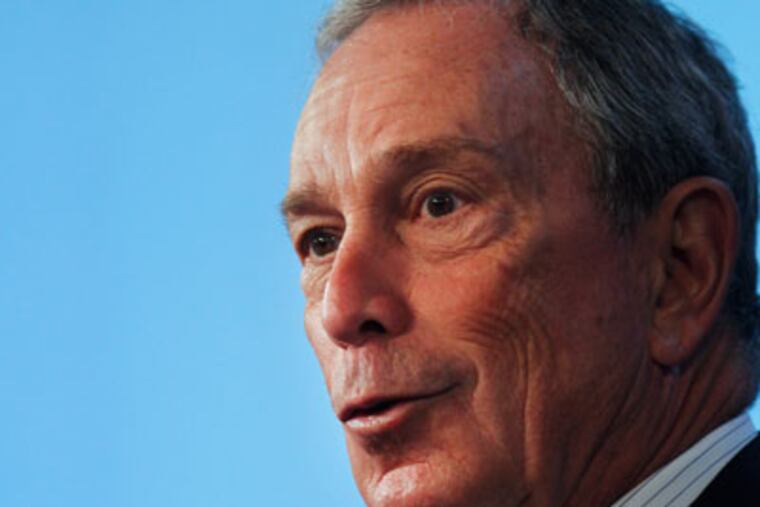Inquirer Editorial: A sweet deal from taxpayers
Advocates can argue back and forth about whether it's a good idea to tax sugary drinks as a way to fight obesity and reduce the costly diseases that result.

Advocates can argue back and forth about whether it's a good idea to tax sugary drinks as a way to fight obesity and reduce the costly diseases that result.
But should taxpayers routinely offer those sugary drinks free to millions of people?
That's what happens in the federal food stamp program, now known as SNAP, Supplemental Nutrition Assistance Program.
Clients can spend their aid on sodas, which means the rest of Americans are paying to provide them free.
The Pennsylvania Department of Public Welfare says SNAP's purpose is to help people "obtain more nutritious diets by increasing their food purchasing power."
Sodas are not nutritious and they are not food. They are a pleasurable source of empty calories that most Americans do not need in their diets.
The federal school lunch program won't pay for sodas. Neither will WIC, the federal program that subsidizes nutritious food for pregnant women, and new mothers and their young children.
So why does the food stamp program pay for them?
One answer might be the clout of the sugar and soda industries.
Sugar interests gave federal candidates $4.2 million of contributions in the 2012 election cycle, according to the Center for Responsive Politics. In 2011, those interests spent $7.9 million lobbying Congress.
In late 2010, New York City Mayor Michael Bloomberg and the state's governor sought federal permission for a pilot project to exclude sugary drinks from food stamp coverage.
Ten months later, the federal government turned down the request. One nutrition advocate summarized the government's objections this way: "Too much, too soon, too big, too complex, too hard to evaluate."
New York antihunger advocates welcomed the ruling. They urged less intrusive measures, such as increasing the value of food stamps when spent on healthy foods.
Philadelphia did just that in 2010 and 2011. The experiment nearly tripled the use of food stamps at farmer's markets. However, the increase was only about $43,500 of healthy food purchases in the second year - about $1 for every 1,400 gallons of sugary drinks Philadelphians consume each year. The extra aid was a handful of sand on a mighty big beach.
Philadelphia isn't pursuing any variation of what New York proposed, according to Sara Solomon, a city health promotion manager. And that makes sense. The federal bureaucracy is clearly reluctant to authorize a politically controversial experiment.
But that hasn't ended the discussion, in New York or elsewhere, on whether Congress should revisit the way it defines the "food" that food stamps can buy.
It's one thing to say people should not be forced to pay an extra tax when they want to enjoy sodas or other sugary drinks.
It's another to force taxpayers to subsidize those unhealthy beverages for people who are getting government assistance.